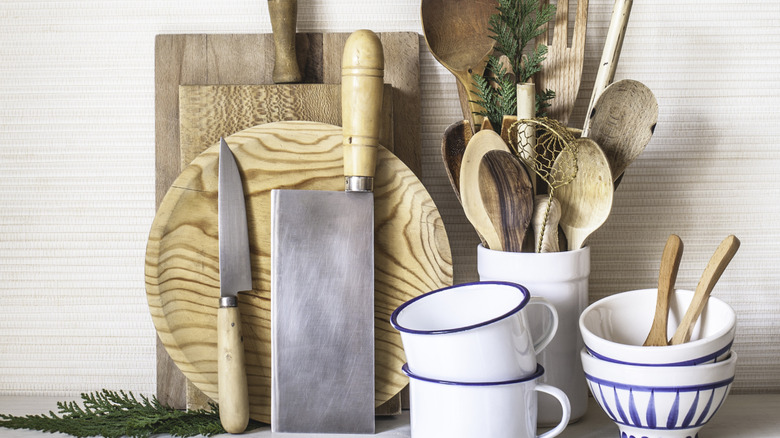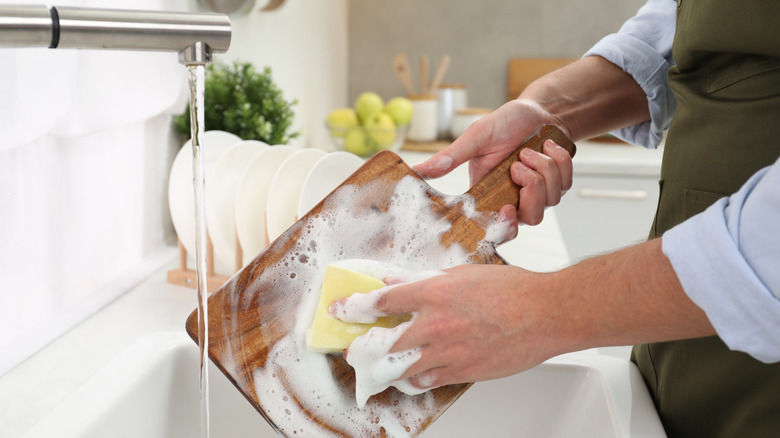Bamboo Vs Wood Cutting Boards: Which Are Better In The Long-Term?
We may receive a commission on purchases made from links.
Buying the right cutting board for your home can feel like a daunting task. If you've decided it's time to ditch the plastic cutting boards in favor of a safer material, your alternative options will include glass, stone, and wood. Wooden cutting boards can include those made with bamboo or hardwood, though only the latter are technically made with wood. While both types have an edge over synthetic-made versions, wood cutting boards are likely a better investment over bamboo in the long term.
True to their name, bamboo cutting boards are made out of bamboo — a material that is technically a fast-growing grass. There are many benefits of using bamboo kitchen utensils, such as the fact that they are durable and cheaper than hardwood. They are also purportedly more environmentally friendly because bamboo grows much more rapidly than trees, making bamboo forests more sustainable. With that said, bamboo does pose the risk of cracking and changing shape over time. Also, some types of bamboo cutting boards are constructed with toxic materials that could potentially leach into foods, including formaldehyde. If you do choose a bamboo cutting board, do your research to ensure the product doesn't contain any harmful additives, such as this Totally Bamboo Cutting Board Set.
Why wood cutting boards have an edge over bamboo versions
Traditional wood cutting boards are made with hardwoods, including cherry, walnut, and maple. Solid wood is believed to be among the safest cutting board material. It is less likely to chip and crack during use, which decreases the likelihood of the board harboring bacteria. Solid wood is also considered sustainable because it can last a long time with proper cleaning and regular oiling to help protect it. Furthermore, wood cutting boards won't dull your knives as other cutting board materials might because of the way they can absorb the impact of cutting. With the right care, wooden cutting boards can last for several years. Their durability and safety make the higher upfront costs of wooden boards worth it in the long run because you shouldn't have to replace the cutting boards in your kitchen as often as alternatives made from different materials.
If you do decide to buy a wood cutting board, make sure the piece is finished with natural oils rather than synthetic microbial inhibitors. You'll also want to ensure the cutting board is indeed constructed out of solid wood and not "pressed" wood. The latter are made with sawdust, and many brands contain resin or glues to hold them together. A solid wood cutting board, on the other hand, will never contain glue. It's worth remembering that despite their durability, wood cutting boards are not dishwasher safe — they must be washed by hand with soap and water just like bamboo cutting boards.

